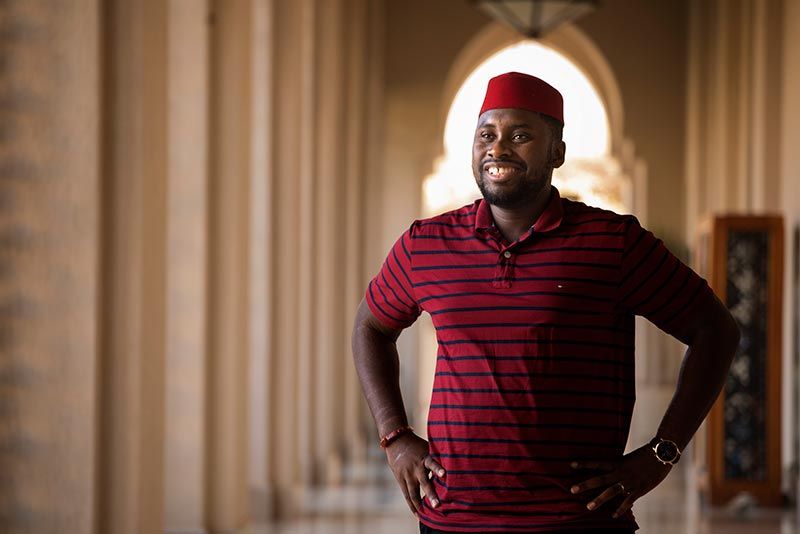Kobo360 CEO is now Enugu’s commissioner of transport
Enugu state governor, Peter Mbah, has appointed Obi Ozor, the co-founder and CEO of Kobo360, as the commissioner of transport.

Obi Ozor, the co-founder and CEO of Kobo360, a pan-African logistics startup, has been appointed as the commissioner of transport in Nigeria’s Southeastern state, Enugu. Obi was sworn in on Friday by Governor Peter Mbah alongside 19 others.
“Your selection was largely driven by your track records, your experience, your background, and it’s our hope that you are going to bring those experiences to bear and to work for the people of Enugu State,” Mr. Mbah told the commissioners at the swearing-in ceremony. “In this journey of greatness, growth, and development, I look forward to working with you all to actualize the Enugu State of our dreams, together.”
The founder of the YC-backed company will be bringing his over six years of logistics and supply chain experience to drive the goals of the Enugu state executive council.
His appointment is coming a few weeks after another Nigerian tech leader, 'Bosun Tijani, the co-founder and CEO of CcHUB was nominated by the country’s president for a ministerial appointment. Iyin Aboyeji, co-founder of Future Africa describes Obi’s appointment as a “superb cabinet pick”. “Our numbers are growing,” Aboyeji posted on Saturday.
Know more about Obi Ozor
Obi completed his Biochemistry degree at the University of Michigan before graduating from the Wharton School of Business. After completing his studies, he worked at J.P. Morgan as an investment banker before becoming the Operations Coordinator at Uber Nigeria. In 2016, he left Uber and later launched Kobo360, one of Africa’s fastest-growing digital logistics platforms, and is building a Global Logistics Operating System [G-LOS], a blockchain-enabled platform to power trade across the African continent.
In 2019, Obi Ozor was named “innovator of the year” and “young business leader of the Year” at the CNBC All Africa Business Leaders Awards. In 2020, Obi alongside his co-founder, Ife Oyedele II, was selected to be a part of Endeavor’s global network of high-impact entrepreneurs. He was also named one of Fortune Magazine’s 40 under 40 global leaders in technology.
Obi was also listed as one of the top sixty Nigerian tech entrepreneurs by Bendada.com in 2020, in commemoration of Nigeria’s 60 Independence Day celebration.
Building Kobo360, one of Y Combinator’s top startups
Earlier this year, Y Combinator named Kobo360 as one of its top companies [based on valuation], alongside seven other African companies including Paystack, Flutterwave, Wave and Yassir.
Since its launch in 2018, Kobo360 has worked with over 50,000 truck drivers in Nigeria, Benin, Ghana, Uganda, Kenya, Côte d'Ivoire and Burkina Faso to help them transport over 760 million kilos (1.67 billion pounds) of goods, worth an estimated $200 billion.
The company has raised more than $68 million since it was founded. Its last disclosed funding was in 2019; a $20 million Series A round led by Goldman Sachs and $10 million in working capital financing from Nigerian commercial banks.
Although 2019 was a “good business" year for the logistics company, the COVID-19 pandemic in 2020 which was accompanied by travel restrictions affected Kobo360's unground operations. These restrictions led the company to make a slight pivot—the company worked with insurance firms to invest over $4 million to build an insurtech product that tackled the risk of goods-in-transit, driver misbehaviour, and credit default, according to TechCrunch.
“Most times, your investors and board are present when it is working. When it’s not working, it can get lonely. At one point, I took leave from work and went for some leadership courses to see if I could figure out how to improve my capacity because I felt like I didn’t have enough ability to run the company anymore,” Obi said. “It is things people don’t talk about; as a founder, there comes a time when we are not the most experienced to run these companies. Some of us actually don’t fit our CEO roles; if we had to be interviewed for our roles, most wouldn’t make the cut.”






